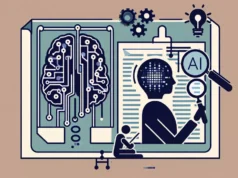In the realm of rapid technological advancement, the topic of privacy laws and regulations has become significant. With the aggressive pace at which technology is evolving, there is a need for privacy laws to keep up. From the Internet of Things (IoT) to artificial intelligence and blockchain, the digital revolution is demanding a more sophisticated approach to user data protection.
One of the hallmarks of this digital era has been the explosion in data production and consumption. Enabled by now ubiquitous internet connections and a plethora of portable devices, every click, swipe, and interaction leaves a digital footprint. From personal preferences to professional activities, vast amounts of data are being created and stored in nebulous places known as ‘the cloud.’
Simultaneously, the development of technologies such as machine learning and artificial intelligence has given rise to a new breed of digital services. These services leverage personal data in decision-making processes, whether to predict patterns, inform advertising or deliver personalized content.
However, the same rapid evolution that offers so many opportunities for growth and advancement also poses significant challenges in terms of privacy and data protection. Traditional laws were not built to cope with the dimensions, the speed, and the inherent global character of the digital world.
Numerous incidents have illuminated the need for robust privacy laws in the digital age. Among the most well-known is the Facebook-Cambridge Analytica scandal, wherein the data of 87 million Facebook users was harvested without their consent for political advertising purposes. This scandal underscored a fundamental flaw in data protection and sparked an international conversation about users’ privacy rights in the digital age.
Following the scandal, the European Union brought into force the General Data Protection Regulation (GDPR) to protect its citizens’ data and privacy. This regulation, which applies to all companies operating within the EU, paved the way for stringent punishment for violations.
However, while the GDPR has been a significant step towards safeguarding data privacy, experts contend that more global uniformity in privacy laws is required. With the rise of remote work and digital economies, businesses now operate without geographical restrictions, dealing with clients and employees from various juridictions with disparate privacy laws.
Advancements in technology also challenge the effectiveness of existing laws. For instance, the rise of blockchain technology, hailed for its potential in creating transparent and secure systems, presents problems for privacy laws. As it stands, once data is in a blockchain, it is almost impossible to remove or alter it—raising questions about how this aligns with GDPR, which includes ‘the right to be forgotten.’
Another challenge is emerging technology such as invasive facial recognition software. It often utilizes people’s photo data without consent, thus posing a significant threat to individual privacy. Lawmakers must adapt regulations to the specific challenges these new technologies present.
Additionally, in many areas of the digital landscape, self-regulation is still the order of the day. Tech companies developing these technologies are left to design their own rules about data collection and privacy—essentially marking their own homework.
Moving forward, adapting privacy laws should involve not only updating the existing legislation but also adopting a more forward-thinking approach. Lawmakers must anticipate and plan for future technological advancements, rather than reacting to them once they have already become an issue. This could involve panels of experts who stay up-to-date on tech innovations and make early, informed decisions about how to handle them legally.
Moreover, global consensus around basic privacy principles would help establish standardized rules across borders. International collaboration and dialogue is vital for this, and structures such as the Cross-Border Privacy Rules system in the Asia-Pacific Economic Cooperation forum (APEC) can be used as a baseline.
In conclusion, keeping pace with fast technology innovations is a daunting task. However, with a forward-thinking approach, international collaboration, and a keen understanding of technology, lawmakers can adapt privacy laws to protect individuals in this new digital era.
Sources:
(1) The New York Times, “Facebook and Cambridge Analytica Scandal”, March 2018
(2) EU GDPR Official Website
(3) The Guardian, “What is GDPR and How does it Affect You?”, May 2018
(4) CNBC, “Challenges in Regulating the Invisible Hand of AI”, March 2019
(5) APEC Cross Border Privacy Enforcement Arrangement (CPEA), Official Website.






